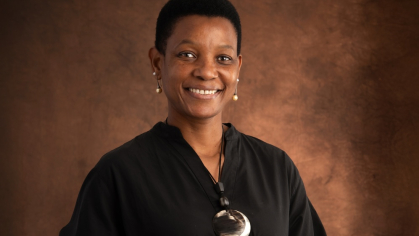American Tales of Race, Celebrity, Slavery Will Be Told at Rutgers, University, Newark, on April 10
What kind of stories do Americans tell each other to understand topics such as race, cities, slavery, sexuality, celebrity and the American West? The answers to that question will be the subject of “American Tales: Media, Identities, and Public Voices,” an April 10 program featuring roundtable discussions, a panel, and documentary film screenings.
This first annual conference sponsored by the Graduate Program in American Studies and the Rutgers American Studies Student Association will be held in the Paul Robeson Campus Center, 350 Martin Luther King Jr. Blvd., on Saturday, April 10, from 10 a.m. to 4 p.m.
Registration is free; morning coffee and lunch will be served. Advance registration at http://rutgerspublicscholarship.org/registration.html is recommended. THE PAUL ROBESON CAMPUS CENTER IS WHEELCHAIR-ACCESSIBLE.
For additional information, please visit: http://rutgerspublicscholarship.org
AGENDA FOR ‘AMERICAN TALES: MEDIA, IDENTITIES, AND PUBLIC VOICES’
APRIL 10, 2010
Morning Sessions, 10:30 a.m. – noon
Panel: “Ins and Outs of Public Culture” features “Susan Sontag, Superstar; Or, How to be a Modernist Genius in Post-Modern Culture,” Pier Dominguez (Brown University, Ph.D. Student); and “Religious Speakers Need Not Apply,” Evelyn Rodriguez, M.A., Rutgers University-Newark.
Roundtable: “Slavery, the Museum and the Public Agenda,” with Kathleen Hulser (New York Historical Society) will explore the challenges of working with different and changing historical understandings of the Underground Railroad while producing accurate but short-form knowledge for the public.
Lunch and Film Screening, 12:15 to 1:45 p.m.
Screened segments from “Carvalho’s Journey,” with producer/director Steve Rivo. A feature-length PBS documentary about a pioneering 19th century Sephardic Jewish-American daguerreotypist who photographed the American West. Discussion.
Afternoon Sessions 2 – 3:30 p.m.
Panel: “Sexual Identity and Immigrant Voices.” Screenings from:
“Envisioning Justice” by Larry Tung (assistant professor, Kean University), a documentary about Pauline Park, an orphan born in Korea who came out as an openly transgendered woman after moving to New York City in 1997;
“Sexual Exiles” by Venezuelan filmmaker Irene Sosa (associate professor, Brooklyn College CUNY), the emotional journey of gays and lesbians who left their home countries because of their sexual identities.
Roundtable: “Race, Rebellion and Revitalization in the Era of the Newark Renaissance,” with Margaret Stevens (associate professor and director, Urban Institute, Essex Community College), examines how Newark functions as an international hub of transportation, immigration, monopoly capitalism, urban revitalization, and political and cultural mobilization, around questions of race, class and gender.
GETTING TO RUTGERS UNIVERSITY IN NEWARK
BY MASS TRANSIT: New Jersey Transit buses and trains, the PATH train and Amtrak from New York City, and the Newark Light Rail, Washington Street Station or Broad Street Station. BY CAR: Via Garden State Parkway, New Jersey Turnpike, Routes 95, 21, 78, or 280, and the Lincoln and Holland tunnels. Metered parking is available on University Avenue. Other parking: Rutgers-Newark’s parking garage (200 University Ave.) or the Bradley Hall Lot. Printable maps and driving directions at: www.newark.rutgers.edu/maps/index.php.


